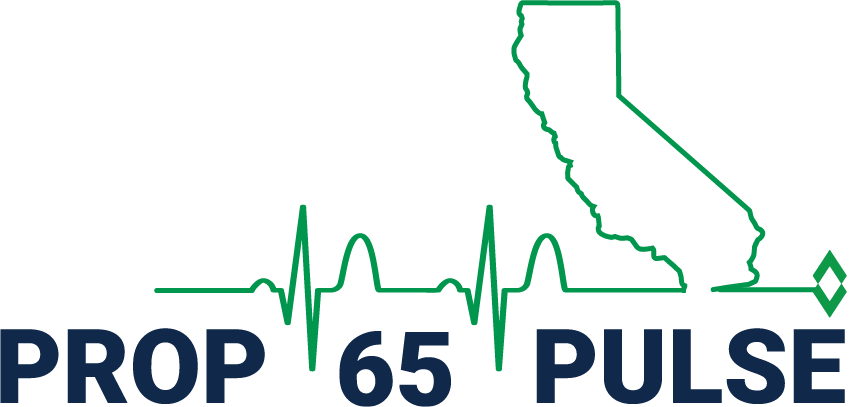November 2024 Bounty Hunter Plaintiff Claims

Exploring Trends in California’s Proposition 65: Claims, Chemicals, Products, and More
California’s Proposition 65 (“Prop. 65”), the Safe Drinking Water and Toxic Enforcement Act of 1986, requires, among other things, sellers of products to provide a “clear and reasonable warning” if use of the product results in a knowing and intentional exposure to one of more than 900 different chemicals “known to the State of California” to cause cancer or reproductive toxicity, which are included on The Proposition 65 List. For additional background information, see the Special Focus article, California's Proposition 65: A Regulatory Conundrum.
Because Prop. 65 permits enforcement of the law by private individuals (the so-called bounty hunter provision), this section of the statute has long been a source of significant claims and litigation in California. It has also gone a long way in helping to create a plaintiff’s bar that specializes in such lawsuits. This is because the statute allows recovery of attorney’s fees, in addition to the imposition of civil penalties as high as $2,500 per day per violation. Thus, the costs of litigation and settlement can be substantial.
The purpose of Keller and Heckman’s latest publication, Prop 65 Pulse, is to provide our readers with an idea of the ongoing trends in bounty hunter activity.
In November of 2024, product manufacturers, distributors, and retailers were the targets of 386 new Notices of Violation (“Notices”) and amended Notices, alleging a violation of Prop. 65 for failure to provide a warning for their products. This was based on the alleged presence of the following chemicals in these products. Noteworthy trends and categories from Notices sent in November 2024 are excerpted and discussed below. A complete list of Notices sent in November 2024 can be found on the California Attorney General’s website, located here: 60-Day Notice Search.
Food and Drug | ||
| Product Category | Notice(s) | Alleged Chemicals |
| Dietary Supplements: Notices include cinnamon supplement, sea moss, and brown rice protein | 42 Notices | Cadmium, Mercury and Mercury Compounds, Lead and Lead Compounds, Perfluorooctanoic Acid (PFOA), and Perfluorooctane Sulfonate (PFOS) |
| Seafood: Notices include smoked mussels, dried seaweed, and sardines | 40 Notices | Cadmium and Cadmium Compounds, and Lead and Lead Compounds |
| Assorted Prepared Food and Snacks: Notices include tortilla chips, crackers, granola, plant-based meats, and yerba mate tea | 32 Notices | Cadmium and Cadmium Compounds, Mercury and Mercury Compounds, and Lead and Lead Compounds |
| THC Products: Notices include gummies, drinks, and oils | 24 Notices | Delta-9-tetrahydrocannabinol |
| Noodles, Pasta, and Grains: Notices include ramen, brown rice, and fusilli | 15 Notices | Lead and Lead Compounds and Cadmium |
| Fruits and Vegetables: Notices include shiitake mushrooms, pineapple chunks, cassava flour, and cut green beans | 12 Notices | Lead and Lead Compounds, and Cadmium and Cadmium Compounds |
| Nuts and Seeds: Notices include sunflower seeds, sunflower seed butter, and flax seeds | 12 Notices | Cadmium and Cadmium Compounds |
| Cassava Products: Notices include cassava flour and cassava pasta | 5 Notices | Lead |
| Alcoholic Beverages | 4 | Alcoholic beverages, when associated with alcohol abuse |
| Mint Products: Notices include gum, candy, and caffeine pouches | 4 | Pulegone |
Cosmetics and Personal Care | ||
| Product Category | Notice(s) | Alleged Chemicals |
| Personal Care Products: Notices include hand cream, make-up remover, and toner | 61 Notices | Diethanolamine |
| Personal Care Items: Notices include tooth whitening systems and body tape | 2 Notices | Di(2-ethylhexyl)phthalate (DEHP) and Perfluorooctanoic Acid (PFOA) |
Consumer Products | ||
| Product Category | Notice(s) | Alleged Chemicals |
| Plastic Pouches, Bags, and Accessories: Notices include coin purses, cooler bags, binder pencil pouches, and backpacks | 34 Notices | Di(2-ethylhexyl)phthalate (DEHP), Diisononyl phthalate (DINP), and Perfluorooctanoic Acid (PFOA) |
| Housewares and Clothing: Notices include tablecloths, umbrellas, jackets, shower curtains, and swim trunks | 25 Notices | Perfluorooctanoic Acid (PFOA) |
| Housewares, Clothing, and Tools: Notices include aprons, dog toys, sweatpants, and tools with vinyl grips | 25 Notices | Di-n-butyl phthalate (DBP), Di(2-ethylhexyl)phthalate (DEHP) and Diisononyl phthalate (DINP) |
| Glassware and Ceramics: Notices include plates, trays, mugs, and mason jars | 22 Notices | Lead and Lead Compounds |
| Housewares and Tools: Notices include brass accessories and paint | 15 Notices | Lead |
| Sports Equipment: Notices include dumbbells, golf gloves, and lead tape | 7 Notices | Bisphenol A (BPA), Di(2-ethylhexyl)phthalate (DEHP), Diisononyl phthalate (DINP), and Lead |
| Leather Goods: Notices include gloves and footwear | 2 Notices | Chromium (hexavalent compounds) |
| Tools: Notices include coal tar epoxy and tool cases | 2 | Bisphenol A (BPA), Epichlorohydrin, Ethylbenzene, Soots, and Tar and Mineral Oils (coal tar) |
There are numerous defenses to Prop. 65 claims and proactive measures that industry can take prior to receiving a Prop. 65 Notice in the first place. Keller and Heckman attorneys have extensive experience in defense of Prop. 65 claims and in all aspects of Prop. 65 compliance and risk management. We provide tailored Prop. 65 services to a wide range of industries, including food and beverage, cosmetics and personal care, consumer products, chemical products, e-vapor and tobacco products, household products, plastics and rubber, and retail distribution.
To contact us with questions or for more information about California's Proposition 65, email prop65@khlaw.com or call our Washington, DC office at 202.434.4100 or our San Francisco office at 415.948.2800.